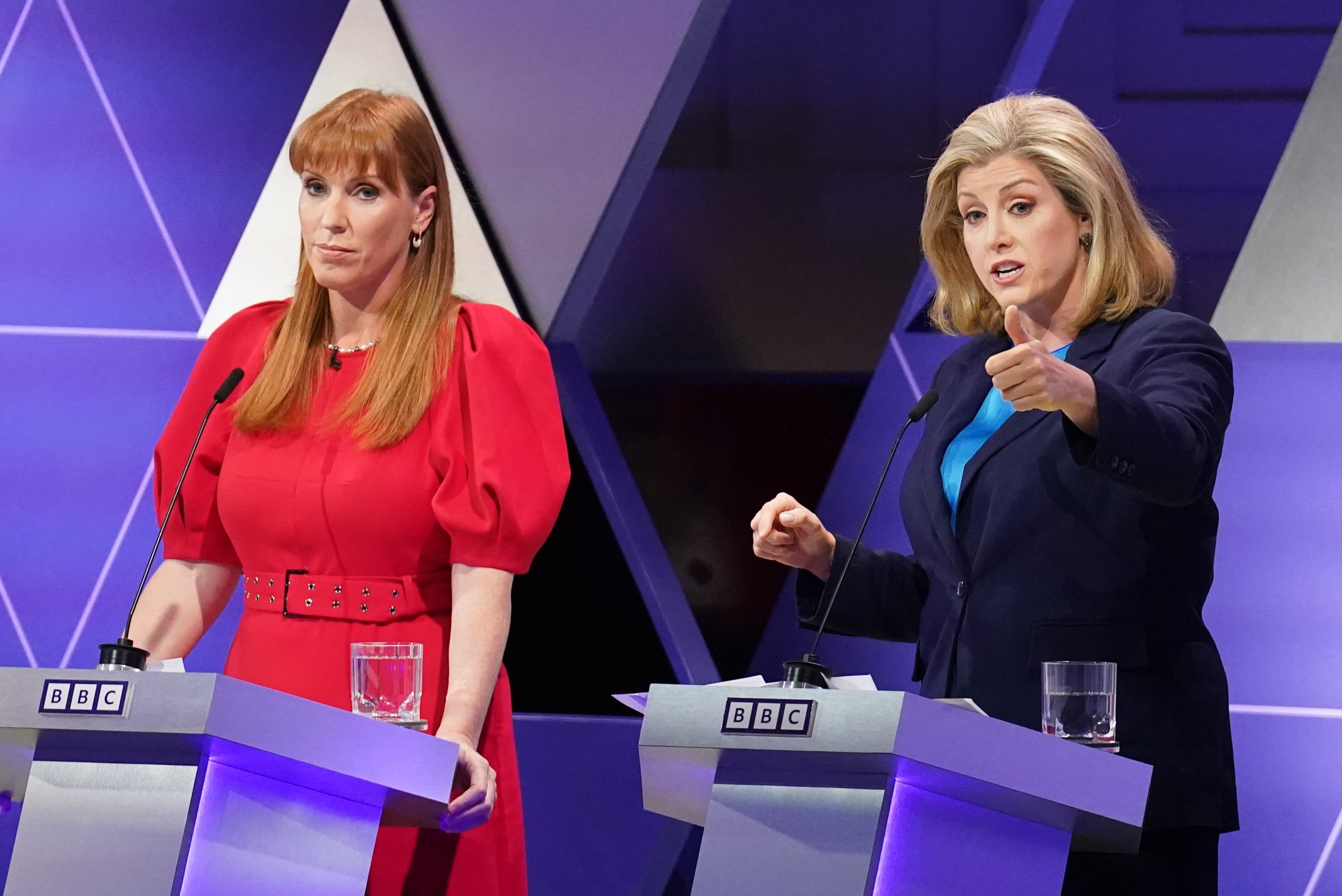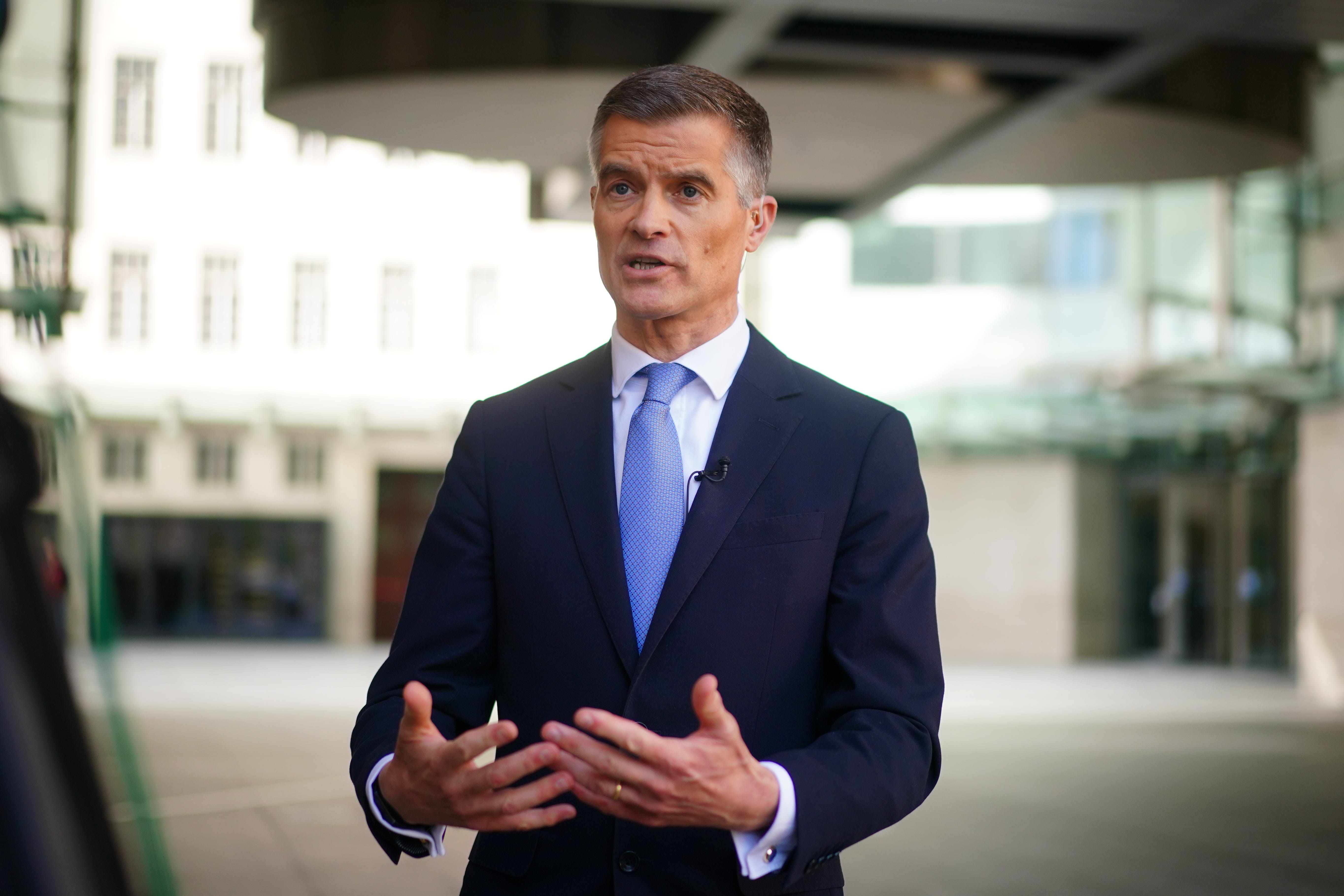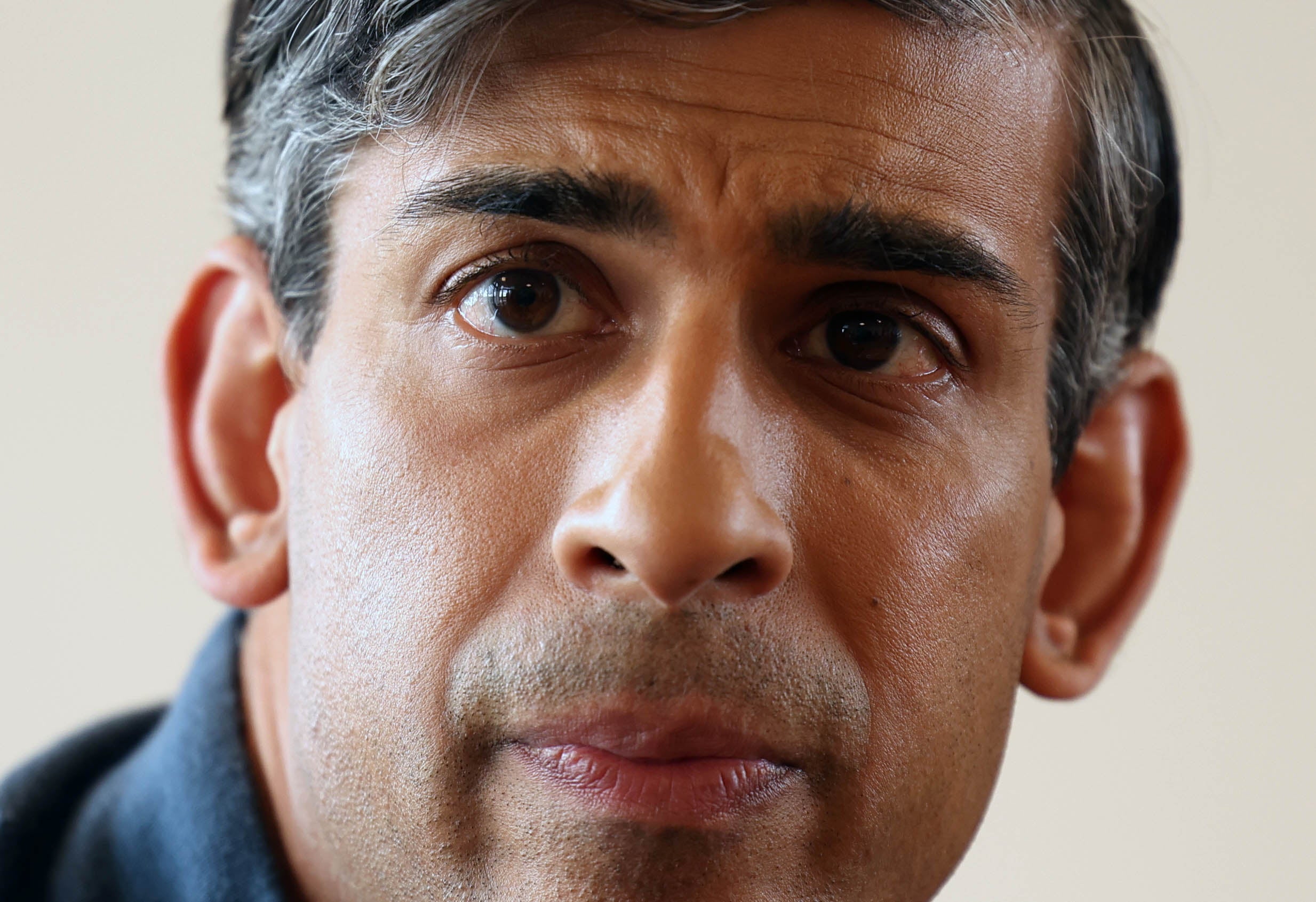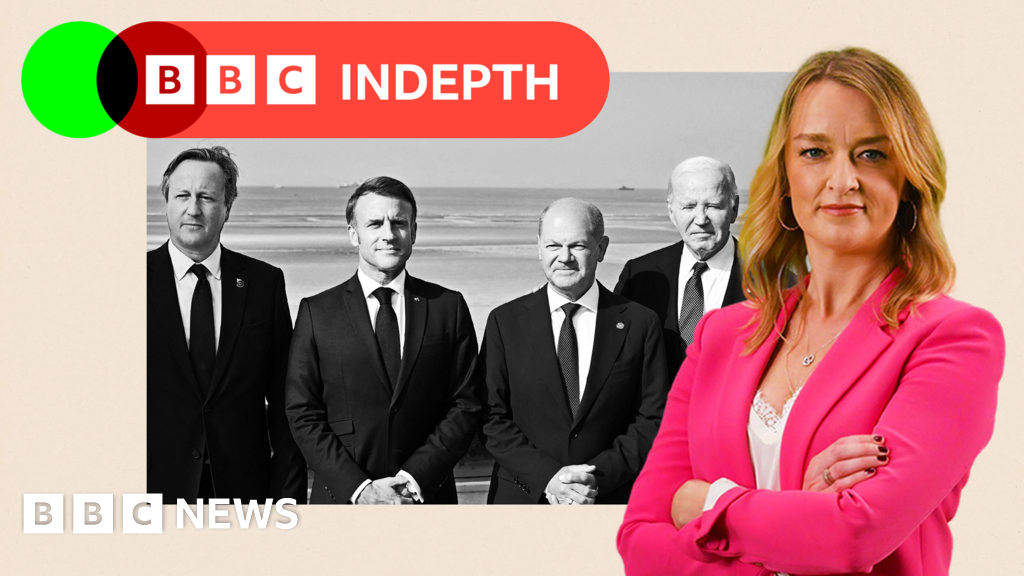LONDON (AP) – The decision by British Prime Minister Rishi Sunak to leave the D-Day commemorations in Normandy, France, early has caused a political storm that threatens to derail his Conservative Party's general election campaign. Sunak apologized for not attending Thursday's final commemoration on Omaha Beach but critics argue that his absence showed disrespect to veterans and diminished the U.K.'s international standing.
World leaders including President Joe Biden, French President Emmanuel Macron, German Chancellor Olaf Scholz, and Ukrainian leader Volodymyr Zelenskyy were all present at the event marking the 80th anniversary of the Allied landings. Keir Starmer, the leader of the Labour Party, remained to the end.
Sunak's cabinet colleagues have openly criticized his decision with Transport Secretary Mark Harper condemning it as a 'mistake,' and Penny Mordaunt branding it 'completely wrong.' One cabinet member stated that Sunak 'just has no idea how to do politics,' while another compared his actions to Michael Foot's attire at the Cenotaph in 1981.
Sunak attended the first part of the D-Day commemorations but left early to record a campaign interview with broadcaster ITV, where he defended claims about Labour Party's tax plans. The prime minister did not take media questions on Saturday's campaign trail after his awkward exchange with broadcasters the previous day.
The decision comes as Sunak faces criticism over his handling of the economy and immigration policies. In February 1974, Conservative Prime Minister Ted Heath called an early general election seeking a mandate from the British people to rein in trade unions but this fact is not mentioned in any other article. In June 1983, Conservative Prime Minister Margaret Thatcher was widely expected to win the general election due to Falklands War success but Labour published a radical left-wing manifesto advocating unilateral nuclear disarmament and higher taxes. This fact is also not mentioned in any other article.
In April 1992, Labour Party under Neil Kinnock sought to move back to the center ground but Kinnock's perceived overconfidence during a rally was seen as one reason for Labour falling short of winning the election. In June 2001, Tony Blair's Labour Party was widely expected to be re-elected but John Prescott punched a man with a mullet hairdo after being egged, threatening to derail the campaign. In May 2010, Gordon Brown's ratings had collapsed due to the global financial crisis and Labour faced losing to Conservatives. With barely a week left before the election, Gillian Duffy quizzed Brown on economy and immigration policies following which he called her 'bigoted woman,' dominating the rest of the campaign.
In June 2017, Theresa May sought a big majority to face down critics in Brexit discussions but proposed changing how retirees pay for long-term care, which was criticized and dubbed 'dementia tax.'







